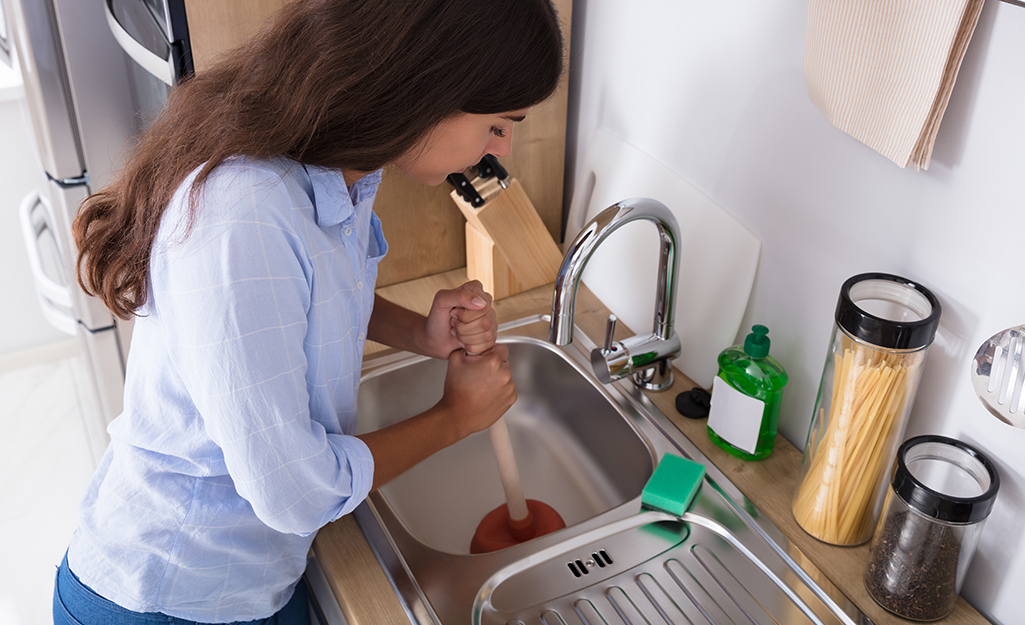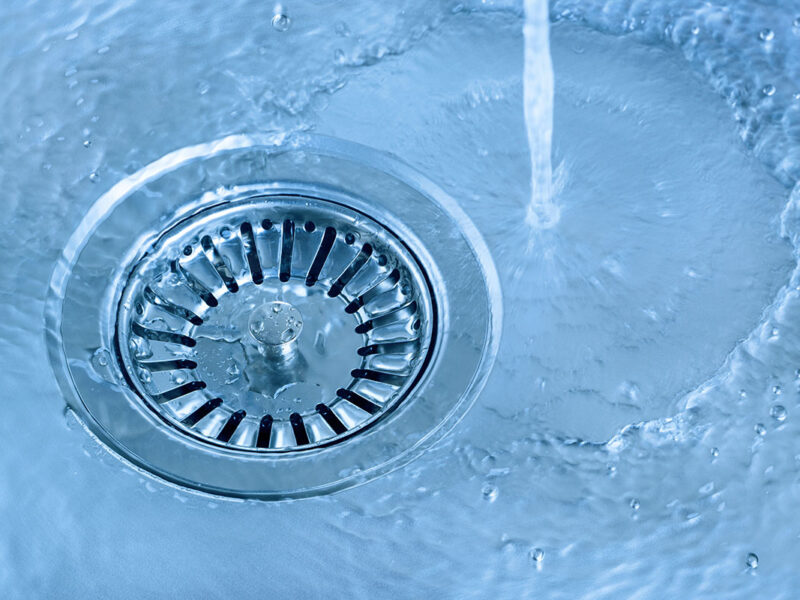Easy Methods To Correct A Slow-Draining Sink
Easy Methods To Correct A Slow-Draining Sink
Blog Article
How do you actually feel when it comes to Solved! How to Fix a Slow Sink Drain?

Intro
We've all been there: You're cleaning your teeth or cleaning your hands, and you see the water merging in the sink. Instead of rapidly swirling down the tubes, it remains, turning your once-refreshing morning routine right into a small overload scene. A slow-draining sink isn't just aggravating; it's usually an indicator of larger plumbing issues prowling underneath the surface. The good news is that the majority of slow-draining sinks can be repaired with a little knowledge, a few basic devices, and some patience. Prepared to tackle this task head-on? Let's roll up our sleeves and dive right in.
Recognizing the Root Causes Of a Slow-Draining Sink
Before you start poking around in your pipelines, it aids to recognize what could be creating the stagnation. Comprehending the origin makes it simpler to choose the best solution.
Tools and Materials You'll Require
The right devices make all the difference. Thankfully, you will not require a totally stocked plumbing's van to finish the job.
Step-by-Step Overview to Dealing With a Slow-Draining Sink
Currently, let's enter the nitty-gritty. This step-by-step procedure will assist you through simple strategies to recover your sink's drainage.
Action 1: Get Rid Of and Clean the Stopper
Frequently, the stopper (that tiny plug you lower to block water) is the very first wrongdoer. Remove it thoroughly and wipe any kind of hair or gunk trapped around its base. Rinse it extensively prior to placing it back in position.
Step 2: Use a Plunger to Dislodge Particles
Got that plunger prepared? Setting it over the drainpipe and provide it a few company pumps. The idea is to develop suction that can loosen any type of blockage. If you see bits of debris drifting up, you're on the right track.
Action 3: Try a Drain Snake or Cord Hanger
If the bettor doesn't suffice, it's time to bring out the drain snake. Delicately feed it into the drain and spin as you go. You might feel some resistance-- that's most likely the clog. Maintain turning and pulling up until you get rid of the obstruction. If you do not have a drainpipe serpent, a straightened cable hanger can operate in a pinch.
Tip 4: Apply a DIY Drain Cleanser
An all-natural cleaner made from cooking soft drink and vinegar can break down recurring crud. Put half a mug of cooking soda into the drainpipe, followed by half a cup of vinegar. Let it fizz for around 15 mins, after that flush with warm water. This chain reaction usually does marvels for small blockages.
Step 5: Reassemble and Test the Sink
Put every little thing back together and run the faucet. Does the water currently swirl away at a commendable speed? If yes, offer yourself a pat on the back. If not, don't misery-- there are still a few even more dress up your sleeve.
Important Tools for DIY Fixes
A bettor is your go-to starting point. A little, sink-sized bettor creates suction that can remove minor clogs. For more consistent obstructions, a drain snake (often called a plumbing technician's auger) functions wonders. A set of handwear covers, a flashlight, and possibly a set of safety safety glasses are likewise helpful.
Recommended Cleansing Solutions
Mild meal soap and warm water can assist break down oily accumulation. A mix of cooking soda and vinegar is a reliable natural home remedy, and chemical cleaners supply a more eco-friendly technique. Maintain chemical drain cleaners as a last option, as they can be harsh on your pipelines.
Common Culprits Behind Slow Water Drainage
So, what's obstructing things up? Commonly, it's a mix of everyday debris-- think hair, soap scum, toothpaste residue, and leftover food bits. Gradually, these little bits collect and cling to the pipe walls, slowly tightening the flow and making it harder for water to travel through. Sometimes, mineral deposits from hard water can also include in the crud, developing the excellent tornado for stubborn clogs.
When is it Time to Take Action?
If you see the water draining pipes slower than common, it's a great idea to step in sooner as opposed to later. Waiting too long might lead to finish clogs, undesirable odors, and even pipeline damage. If the water takes more than a couple of seconds to remove after shutting off the faucet, consider it a red flag and prepare yourself to place on your DIY hat.
Safety First: Safety Measures and Prep work
Before you launch into unclogging setting, consider safety and security. You're taking care of possibly filthy water and debris, so slip on a pair of gloves. If you're using chemical cleaners, ensure the room is well-ventilated and adhere to the directions on the label.
Safety Equipment and Work Space Setup
Put down some old towels or cloths around the sink area to capture sprinkles. Remove any kind of items that could get in your means, like soap dispensers or toothbrush owners. See to it you have great lighting-- get hold of a flashlight if needed.
Alternative Approaches for Stubborn Clogs
Not all blockages are created equivalent. If your sink still declines to work together, take into consideration these different remedies.
Baking Soda and Vinegar Approach
We already discussed this, but it deserves keeping in mind once again. This mild, green method is much safer than chemical cleaners and usually rather efficient.
Chemical Drainpipe Cleansers
Enzyme-based cleaners utilize all-natural microorganisms to absorb organic matter. They're an exceptional selection if you're seeking to prevent harsh chemicals. Simply keep in mind, they may take a bit longer to function their magic.
Chemical Drainpipe Cleaning Company: Pros and Cons
Chemical cleansers can blast through tough clogs fast, but they're not without downsides. They can create warmth and fumes, damages pipes if used excessively, and present ecological dangers. Use them sparingly, and always follow the directions thoroughly.
Preventive Measures to Maintain Your Sink Flowing
Avoidance is the very best remedy. By embracing a couple of simple habits, you can keep your sink from slowing down to begin with.
Routine Cleansing Routines
Wipe down the sink container and component area on a regular basis. Eliminate hair or food bits before they have an opportunity to wash down the drain.
Staying Clear Of Unsafe Compounds Away
Hesitate before discarding coffee grounds, grease, or coarse veggie scraps down the sink. These perpetrators cling to pipe walls, producing clogs in time.
Regular Maintenance Checks
Schedule a quick month-to-month inspection. Run warm water via the sink for a few minutes, taking note of the flow. If it seems slow, act quickly prior to it ends up being a full-on obstruction.
When to Call an Expert Plumbing Professional
Occasionally, despite how tough you try, that block simply won't budge. That's when it's time to bring in the pros.
Indications That Suggest an Extra Major Problem
If your sink drains pipes slowly regardless of numerous attempts, or if you discover water supporting in other fixtures (like your shower or commode), you may have a much more significant plumbing problem lurking much deeper in the system.
Balancing DIY Efforts with Expert Aid
While DIY can save you cash and supply a feeling of achievement, there's no shame in calling an expert. An expert plumbing professional can evaluate your entire pipes setup, making sure there's no underlying damage or long-lasting trouble that might cost you much more down the road.
Contrasting Prices and Long-Term Solutions
Before choosing, take into consideration the big picture. An economical, quick fix could resolve the problem temporarily, however investing in an extra long-term option could save you cash and tension in the long run.
Considering the Expenses of Do It Yourself vs. Expert Fixes
Do it yourself repairs usually set you back little bit more than the rate of a plunger or a container of cooking soft drink. Specialist services, on the other hand, featured a cost however may avoid repeated concerns and costly repairs later on.
Investing in High Quality Fixtures and Upgrades
If your sink's layout adds to regular clogs, it could be worth updating to higher-quality components or modifying the plumbing format. Consider this a financial investment in your home's functionality and comfort.
Verdict
A slow-draining sink can feel like a small irritability, yet it's commonly an indicator that your pipes requires a little tender loving care. By recognizing the origin, using the right devices and techniques, and committing to straightforward preventive measures, you can keep your sink flowing openly. And when all else fails, never think twice to contact an expert-- your home's pipes deserves the investment in treatment and upkeep.
Three Common Ways to Fix a Slow Drain
Baking Soda Method
Boil a full pot of water. Measure out cup of baking soda and pour it down the drain. Then take cup of the magical cleansing substance known as white vinegar and drop that down there too. Allow the mixture to fizz in the drain for five minutes as the vinegar and baking soda combine. Now dump in that whole pot of boiling water. This combination of cleaning substances should clear out anything that is causing your sink to drain slowly. If it doesn t...
Zip-It
If the baking soda method doesn t clear out your drain, it may be because a significant amount of hair and/or other debris has collected there and you need to remove it. Purchase a Zip-It tool at any home improvement or hardware store and insert it into your drain. It will catch any collected hair or debris that s blocking the flow of water. Pull it out. If it s got a big clump of hair, etc. on the end, you ve probably got your culprit.
Drain Cleaner
If these methods don t work, there is the standard drain cleaner that you can also buy in a hardware store or even your local grocery store. It s better if you can use a household solution, but these drain cleaners often work in a pinch. They re very simple to use. You generally just dump them in your drain and wait. If even this method is not effective, it may be time to call the plumber.
https://www.mrrooter.com/oneida/about-us/blog/2017/july/three-common-ways-to-fix-a-slow-drain/

We are very taken with Three Common Ways to Fix a Slow Drain and I hope you enjoyed reading the entire blog posting. Sharing is good. You never know, you may very well be helping someone out. Thanks a lot for being here. Revisit us soon.
Book-Now Report this page